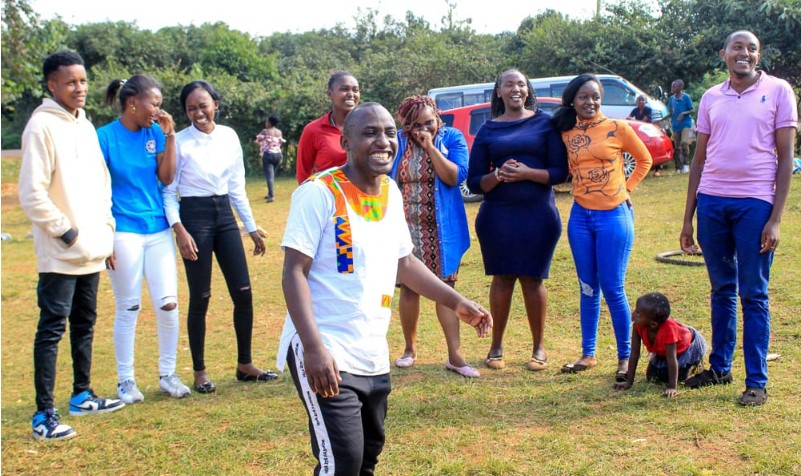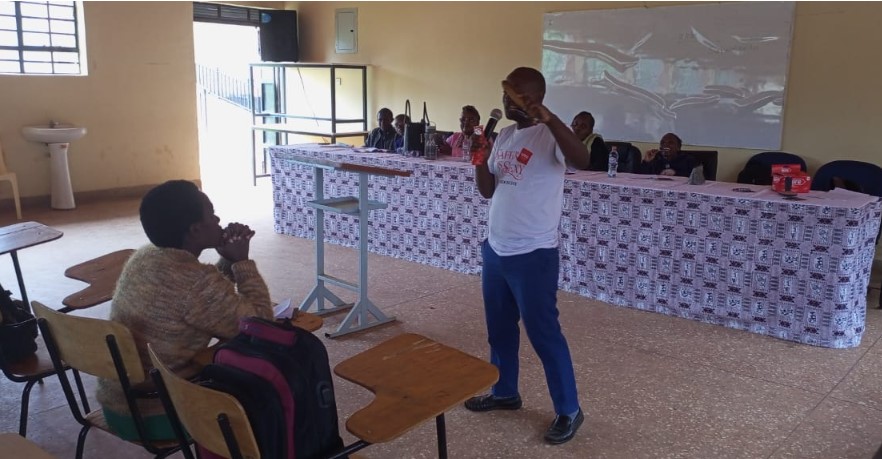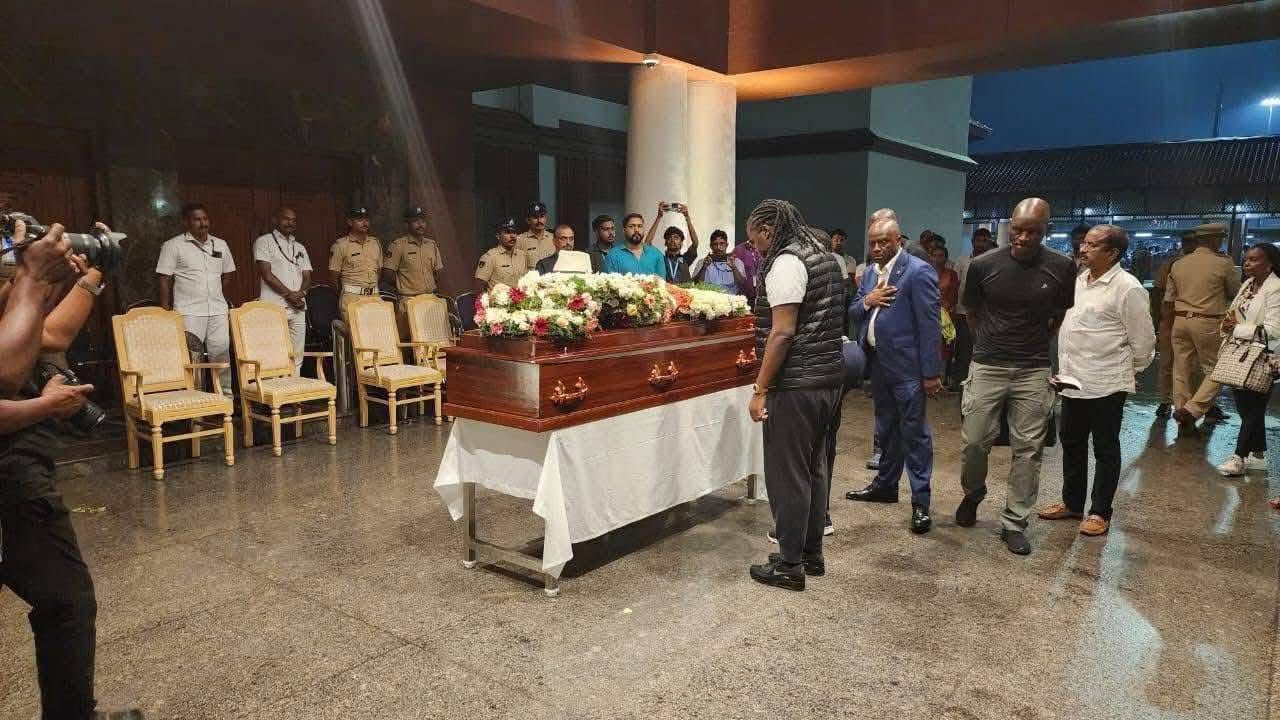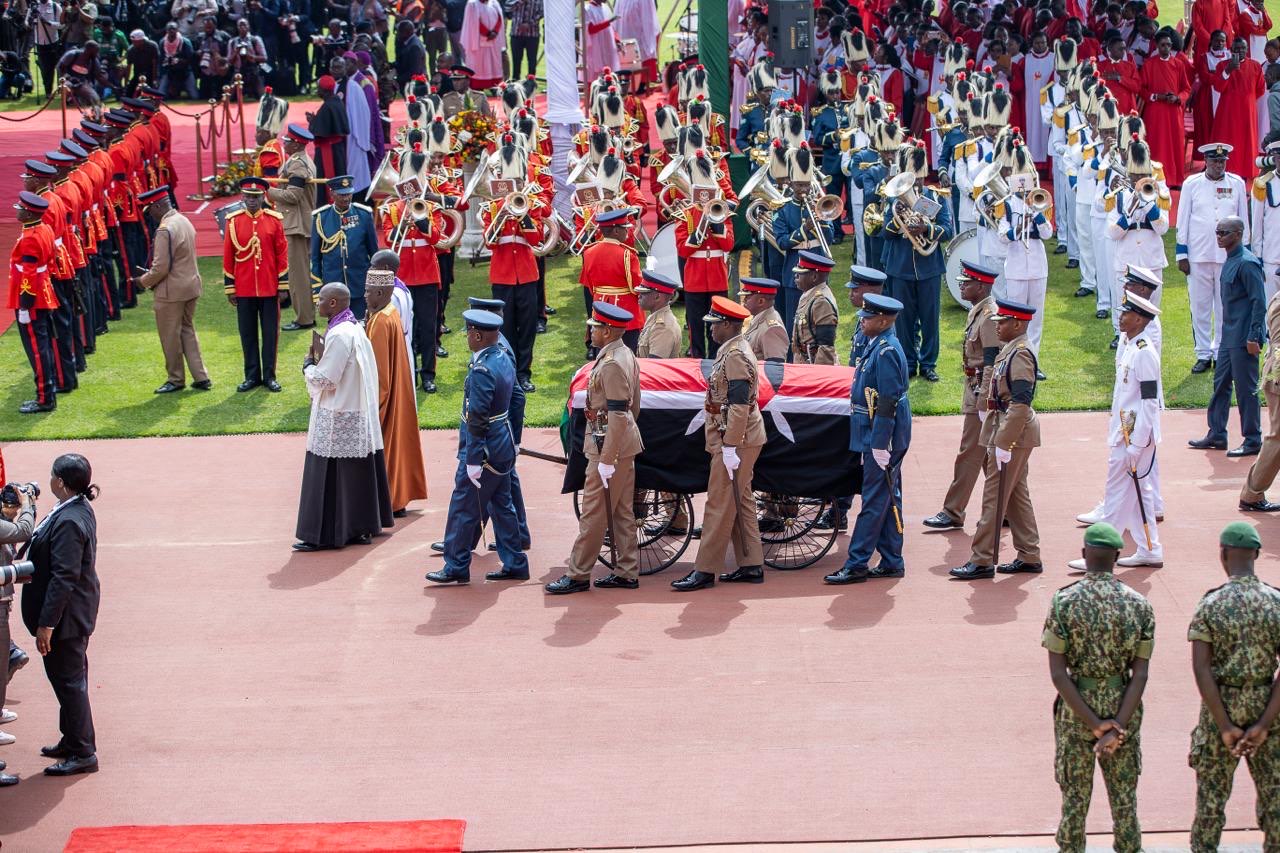After losing parents to HIV, young man embarks on mission to fight stigma

From a very young age, David Wanjiku, now 27, watched helplessly as his parents battled their deteriorating health. He saw them struggle daily, dependent on constant medication in a fight against a relentless illness that seemed to drain their life from them.
The physical toll on their bodies was hard to ignore, but it wasn't just their health that suffered, it was the stigma and discrimination that came with being HIV-positive.
More To Read
- Lenacapavir: A promising breakthrough for HIV prevention in pregnant, breastfeeding women
- 'We feel forgotten': People living with HIV decry stigma as US aid cuts bite
- Drug shortage fears mount as distributors push for reinstatement of 21,000 blocked medicines
- Kenya sees alarming rise in HIV infections after years of decline
- Kenya records over 20,000 new HIV infections in 2025 as Nairobi leads in cases
- Kenya surpasses global HIV targets as deaths, infections decline
David's memories are filled with the haunting images of watching his parents slowly fade away, their health declining day by day. He remembers the toll the virus took on them — how they lost weight, grew weaker, and seemed to be slipping further from life with each passing moment.
His father was the first to lose the battle, and then his mother followed, and finally, his sister. Each loss was like a crushing weight on his heart, leaving him feeling more and more isolated.
Left with no family to turn to, David was forced to face the world alone.
The pain of losing everything, coupled with the harsh stigma his family endured, left him feeling abandoned.
The community turned its back on them, and David found himself in an orphanage, stripped of the love and care he once had, navigating the world by himself, without a place to truly call home.
Harsh discrimination
"Watching my parents succumb to the virus is an image that has deeply influenced me. I remember a time when HIV/AIDS was surrounded by so much stigma. Those living with the virus were severely secluded and faced harsh discrimination."
Growing up in an orphanage in Murang'a, David witnessed first-hand the struggles of other children and teenagers battling HIV, as well as the mental health challenges they faced. These experiences deeply affected him and motivated him to take action. He realised that many people in the community lacked the knowledge and resources to protect themselves and manage the virus.
Now a passionate youth advocate, David has taken the initiative to educate young people, especially men and mothers, on how to protect themselves from HIV and how to live positively with the virus.
His mission is to raise awareness, reduce stigma, and provide practical information on HIV prevention and care, ensuring that young people understand their rights and how to safeguard their health and the health of their children.
 David Wanjiku speaking during a community workshop to educate people about HIV/AIDS. (Photo: Handout)
David Wanjiku speaking during a community workshop to educate people about HIV/AIDS. (Photo: Handout)
He began by engaging with boda boda riders about community issues, including TB, HIV, and sexual reproductive health.
His focus was on men, as they lacked access to information.
Quickly, he observed a significant knowledge gap and harmful attitudes that pushed young people into risky behaviours. This realisation inspired him to conduct research, ultimately leading him to write an abstract that was presented to the National AIDS and STI Control Programme (NASCOP).
"I wrote an abstract to understand why the youth were more susceptible, and through my research, I discovered several key factors. These included multiple sexual partners, poverty, lack of protection, lack of awareness, and risky attitudes."
He notes that HIV/AIDS among the youth is particularly daunting, as some contracted the virus from their mothers and now live with it, which significantly impacts their mental health.
Mental health remains a serious challenge for young people living with HIV, which led him to start a foundation aimed at reaching out to and encouraging them.
His foundation is dedicated to helping young people living with AIDS understand that it is not the end of the road. After growing up in a children's home and facing his own health challenges, he now talks to young people, offering encouragement and support.
Outspoken advocate
He has worked closely with young people to understand their challenges, becoming an outspoken advocate. His efforts focus on raising awareness to help mitigate HIV among youth.
"I go to schools and communities to talk to young people, helping them become aware of their HIV status," he says.
As a young advocate, he recognises that many people face challenges disclosing their HIV-positive status to their partners.
"We often connect people with the nearest advocate because many fear rejection and don't know how to handle the situation. This uncertainty often leads to the rise of HIV cases, but it's important to know that you can still live a fulfilling life with HIV," he explains.
He acknowledges that the stigma surrounding HIV is still very real, and many young people are afraid for their future. However, he strives to educate them on how to protect themselves and live safely.
He emphasises the message that "undetectable equals untransmissible". Consistently taking medication allows those living with HIV to prevent transmission to others.
"If a mother consistently takes her medication, she will not transmit the virus. I want the community to understand this," he stresses.
More partnerships
As a community health assistant in Murang'a since 2020, he has been a key player in promoting awareness and supporting youth. At just 26 years old, he calls for more partnerships to empower young people and advocates, so they can better understand HIV prevention and treatment.
"When a client starts medication, we connect with them, share life experiences, and encourage them to use the available health facilities. We also connect them with social workers who provide further support," he says.
As a paralegal, he advocates for HIV awareness, the fight against gender-based violence, and the intersection of these issues. His work has impacted approximately 5,000 people dealing with these challenges, and he continues to push for more awareness and support.
David calls for greater awareness and more partnerships to help young people. He is particularly focused on increasing efforts to prevent mother-to-child transmission of HIV. He believes that with more dedication and community support, many more young lives can be saved.
Mother-to-child transmission
A report by the National Syndemic Diseases Control Council (NSDCC) reveals that Kenya lost 2,607 children under the age of 14 to HIV/AIDS last year, highlighting concerns about efforts to prevent mother-to-child transmission.
The report also indicates that 3,743 new HIV infections were recorded among children under the age of four during this period. However, new HIV infections have dropped by 83 per cent, from over 101,000 in 2013 to just under 17,000 in 2023.
Additionally, AIDS-related deaths have decreased by 64 per cent over the same period. The report credits antiretroviral therapy with transforming HIV from a fatal diagnosis into a manageable condition.
Among the estimated new infections, 37.7 per cent were linked to mothers discontinuing their antiretroviral therapy (ART), while 25.5 per cent resulted from mothers not receiving ART.
In the 1980s, HIV/AIDS was a major threat, claiming millions of lives worldwide. However, the stigma surrounding the virus persists, with those living with it often facing harsh judgment. This stigma contributes significantly to many young people defaulting on treatment or relapsing, which in turn fuels the continued spread of transmission.
In Kenya, an estimated 1.6 million people are living with HIV/AIDS, and 1.1 million children have been orphaned due to the disease. While more than six per cent of the population is affected by HIV, certain regions and vulnerable groups have been disproportionately impacted.
As of 2024, the NSDCC reports that 1,378,457 people are living with HIV, 16,752 new infections, and 20,480 deaths.
HIV/AIDS is a virus that attacks the immune system, specifically the CD4 cells (T cells), which are essential for fighting infections. If left untreated, it can lead to AIDS (Acquired Immunodeficiency Syndrome), the final stage of HIV infection, where the immune system becomes severely weakened, making the body vulnerable to opportunistic infections and cancers.
While there is no cure for HIV, it can be managed with antiretroviral therapy, which involves taking a combination of HIV medicines daily.
When the viral load is undetectable (very low levels of the virus in the blood), it becomes undetectable and untransmissible, meaning the virus cannot be transmitted to sexual partners.
With proper treatment, people living with HIV can lead a normal life expectancy and prevent the progression to AIDS.
Top Stories Today












































